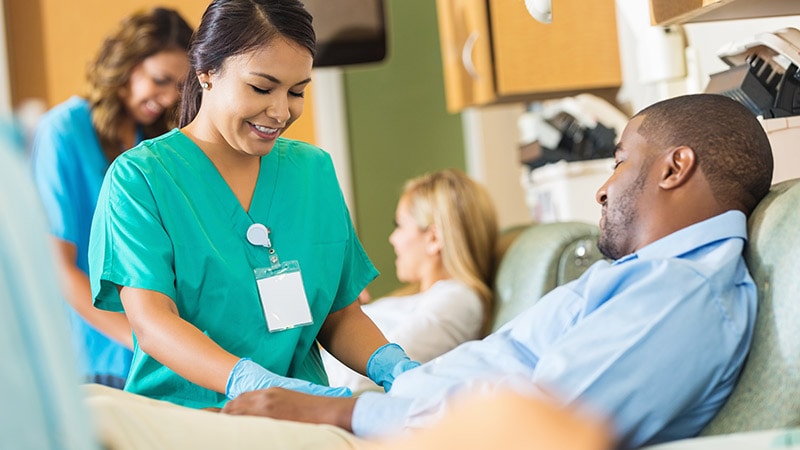New Support for Ketogenic Diet in Multiple Sclerosis New Support for Ketogenic Diet in Multiple Sclerosis
March 6, 2025Innovative Diagnostic Platform Uncovers Novel Skin Disease Innovative Diagnostic Platform Uncovers Novel Skin Disease
March 6, 2025
The NHS has resumed using UK-sourced blood plasma products for the first time since a 1988 ban. The move is part of efforts to reduce reliance on imported plasma-derived medicines.
The Department of Health and Social Care confirmed that NHS Blood and Transplant has collected 250,000 litres of plasma from donors in England since 2021.
Background on the Ban
The UK banned the use of domestically collected blood plasma for fractionation due to concerns about the potential risk of variant Creutzfeldt-Jakob Disease (vCJD). This human neurodegenerative disorder has been linked with the consumption of beef from cattle with bovine spongiform encephalopathy (known as ‘mad cow disease’). Some experts feared that the prions responsible for vCJD could be transmitted by eating infected meat and then via blood or plasma products.
Following the ban, the UK relied on imported plasma-derived medicines, mainly from the United States, which increased dependence on international supply chains. The ban also led many countries to restrict blood donations from people who had spent significant time in the UK between 1980 and 1996. British beef exports were also suspended until 2006.
Steps Toward Self-Sufficiency
Restrictions on UK-sourced blood plasma products began to be lifted following scientific reviews by the Medicines and Healthcare products Regulatory Agency. Rigorous research had shown no confirmed cases of vCJD transmission through plasma-derived medicines, the agency found.
In 2021, it lifted the ban on using UK plasma to manufacture immunoglobulin, used to treat autoimmune conditions and immunodeficiency. In 2023, the restrictions on albumin products, used in surgery and to treat burns and liver conditions, was also lifted .
Each year around 17,000 NHS patients rely on plasma-derived medicines for immune deficiencies, autoimmune conditions, liver disease, and rare disorders. Plasma is also essential in emergency medicine, surgery, childbirth, and trauma care.
Reducing Dependence on Imports
The UK aims to supply 25% of its immunoglobulin needs by the end of 2025, increasing to 30%-35% by 2031. The NHS also expects to meet 80% of its albumin demand by 2026. The government estimates the shift will save the NHS £5 million to £10 million annually.
In a press release, Health Minister Baroness Gillian Merron described the announcement as “a significant milestone for the NHS” in taking a step toward UK self-sufficiency in plasma medicines. “By sourcing our own medicine, we are building a more resilient and domestic medical supply chain and boosting economic growth,” she said.
Sir Stephen Powis, national medical director for NHS England, said the change ensures access to critical plasma-derived treatments for thousands of patients with serious conditions. The “landmark moment” will reduce our reliance on imported stock and “boost the fortitude” of hospital supplies, he said.
Dr Sheena Meredith is an established medical writer, editor, and consultant in healthcare communications, with extensive experience writing for medical professionals and the general public. She is qualified in medicine and in law and medical ethics.
